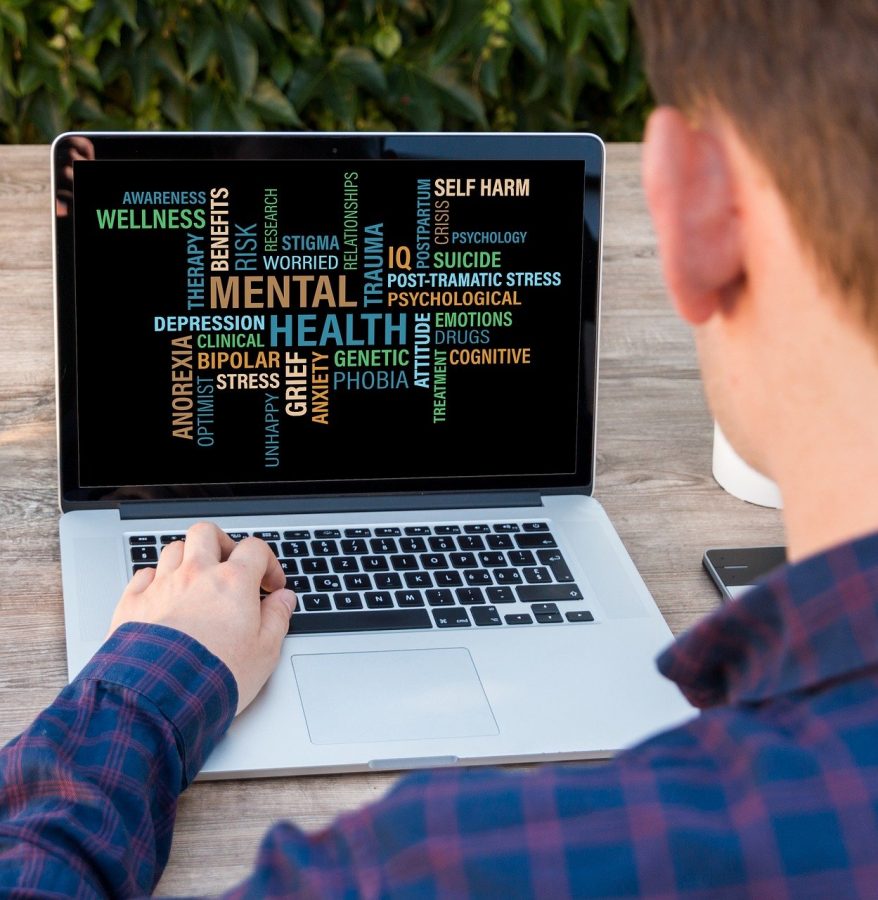Over the years parents have seen an increase in depression in teenagers due to social media according to Child Mind Institute, by Caroline Miller, Editorial Director.
“Social Media is linked to the increase of depression amongst teenagers over the past decade,” Miller wrote.
Who is to blame for this? Is it the parents, social media, or a combination of both?
Parents should take the most responsibility for allowing their kids to be on social media for so long.
Simply talking to your kids can solve the issues they face behind the scenes.
Parent must do their best to ensure their children don’t feel discouraged by content on the internet. Enforcing rules on the phones they pay for their child to own.
A phone should give their children the necessities they need to communicate with family and friends.
Social media applications are widely accessed through smartphones and need more secure and transparent terms and conditions, no one is reading the entire terms and agreements issued on the applications used.
Teenagers struggle with mental health caused by toxic unrealistic values. However, the majority of teenagers seem to implement what they see on the internet and apply it to their everyday lives.
Teens feel the need to compare each other’s lives based on what they have rather than appreciate what they have. Unmotivated teens become discouraged when they realize that they may not be as fortunate as others they see on social apps.
According to HelpGuide multiple studies have found a strong link between heavy social media and an increased risk for depression, anxiety, loneliness, self-harm, and even suicidal thoughts.
In other previous studies, social media platforms like Instagram have increased the number of cases of social anxiety disorders in teenagers and adolescents according to Ignite TeenTreatment.
Social anxiety, also known as social phobia, has three dysfunctional beliefs which have been identified as the primary cause of social anxiety.
According to the New York Behavioral Health, one of the dysfunctional beliefs is called high-standard beliefs. High-standard belief is an unrealistic standard such as “ I must be liked by everyone I meet.”
These high-standard beliefs are not fundamentally anxiety-causing, but it’s when one fails to meet these high standards, one can experience a lot of anxiety.
Social media takes a huge toll on mental health so it would be best for everyone especially teens to use less social media.
In 2011, Steve Jobs interviewed with the New York Times and said he limits his kids from using the newly-released iPad. He also stated in the interview, “We limit how much technology our kids use at home,”
Steve Jobs knew the mental effects of social media as well as other billionaires, millionaires and creators of the same media and technologies that kids use today.
A strong recommendation to lower the amount of damage to teenagers’ mental health is to advocate more ways to be socially active. Especially during COVID-19 finding both creative and safe ways to distract teenagers from social media to improve mental health is challenging.
Encouraging the youth to engage socially in person can take away the urge to communicate through their phones.
The idea is to make teenagers less dependent of their phones, which will lead to a reduced amount of time on social platforms and eventually reducing the chances of developing depression over time.
It is important to see how kids’ attitudes have changed compared to the previous generations who grew up without these social platforms.
The generations that have come before us didn’t grow up with social media or a phone in their childhood. Times have changed since then, another solution for teens can be to ask an adult how they got through their teenage years without easily accessible technology.
By teenagers being given adequate amount of responsibilities they will learn to become disciplined and independent from phone usage which will eventually lead to a decline in depression caused by social media.
Sources also indicate that 92% of American teens check social media regularly. Most teens and tweens use social media for more than 6 hours per day. These statistics are true among teens between the ages of 12-19 years old, according to Pew Research Center.
Parents encourage your children to seek age appropriate entertainment outside of social media. Teenagers shouldn’t spend so much time online it is easy to get lost in all the content offered via social media,
Social media developers aren’t worried about the effects their platforms have on your children their job is to keep their usage up and keep people on their platforms, it is your job to worry about what social media is doing to your teenagers.


























